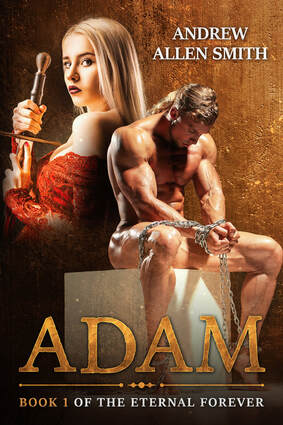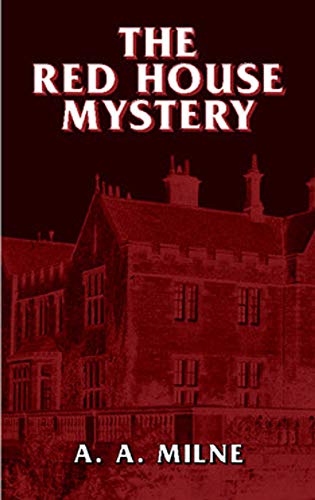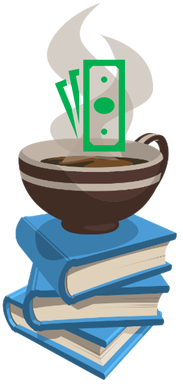 Whenever I meet someone new, and tell them I’m an author, there’s always one question they ask… “What kind of books do you write?” For most people, this is a fairly straight-forward question. From the time we’re first introduced to books, we learn about the Dewy decimal classification system, where books of similar type are grouped together. Notice I said books are grouped by type, or genre; not by the author’s name. This makes sense. Most of us don’t always know who wrote a book… unless the author is super-famous, or they are a particular favorite… but we know what types of books we enjoy reading (by the way, this is why pseudonyms can work… but you can read about my opinion on that question HERE). So, if you like horror, you’ll find books by Stephen King, Mary Shelley, Bram Stoker, and Anne Rice all in the same area of the library. If you enjoy romance, you’ll see work by Jane Austen, Nicholas Sparks, Margaret Mitchell, and Sidney Sheldon all sharing shelf space at your favorite bookshop. This is helpful for people who want more of the same but can’t identify authors. It’s also easier on librarians. Imagine organizing the entire library alphabetically by the author’s last name. That would be a shelving nightmare, I think. Authors usually have one genre that’s a favorite, and they write lots of different books, keeping their stories within that genre. Some will divide their loyalties between two genres. However, the majority of authors I’ve met don’t write books in more than two, and usually, they’re closely related. Horror writers may also write paranormal; romance authors might also write cozy mystery, and science fiction writers often write fantasy (although personally, I think those last two are farther apart than most people assume). The point is, it’s rare to find a sonnet poet who also writes spy thrillers, or a science fiction author who also writes picture books for children. It does happen, I personally know several authors who write in multiple genres (I tend to seek them out), but it’s not the “norm.” Enter stage right… My verbal stumbling when asked what genre I write. You see, I haven’t figured out my favorite one yet, so it’s difficult for me to choose. It’s kind of like ice cream… or cheese… there are so many different, amazing varieties to devour – how can you possibly only have one kind for the rest of your life? You really need to try them all. After that, chances are likely that you’ll find a few that you return to again and again, but that doesn’t mean you’ll completely ignore the others forever. After all, cheddar is amazing, but for me, life just wouldn’t be whole if I couldn’t also devour swiss, colby, parmesan, gouda, muenster… you get my point. Back in the days when I wrote for a newspaper, reporters rarely only wrote one type of story. One week I might be writing a feature about a holiday celebration; the next I might be covering a sporting event; and the week after that, I could be writing about a political rally. Diversity in writing is what helped me keep my job, and quite frankly, made the job more interesting for me. I took that experience with me when I began writing books. Since the editor at the newspaper didn’t see a good reason to limit my writing, I figured that I didn’t have a good reason to do it, either. When I finally made up my mind to write and publish a book – for real – I found that I had so many ideas swimming around in my head, I couldn’t decide on what to write… which genre would be best, and exactly how many were there? When the Duck quacks, I listen, but sometimes, he’s not real succinct on his intention. So, I did what I was taught, and was soon wandering down several research rabbit holes. I needed to find definitive guidelines on what genres were out there. This is when I discovered an article by Mark Nichol, “35 Genres and Other Varieties of Fiction” to use as my guide. Most of these can be shoehorned into one of the more familiar, “most popular” genres, but I really like the lines of distinction Mr. Nichol draws. There is far more room for creative ingenuity in his list. I used the article as my template, and started brainstorming on book ideas. I’m a Passionate Plotter. Working from an “idea list” and then building that into an outline is helpful for me (more on that another time). The best part about discovering this genre article was that now, I had some parameters in which I could corral all my story ideas. I was able to put pieces into lists where they would fit to meet reader expectations, rather than working to include all the flailing nuances into a single story. This is an important consideration if you don’t want to give librarians a fit of frustration trying to shelve your books. Also, if an author actually wants to sell books, they should at least be able to describe it accurately for readers. If you can’t identify what type of story you’ve written, readers will have a hard time deciding if they want to take a risk in reading it. I understand these rules, and I know why they exist… it all makes perfect sense. But that doesn’t mean I have to be restricted by them. So, after reading Mr. Nichol’s article, I still couldn’t decide on a favorite. It’s hard. I love reading a lot of different types of books, and I have stories in my head that have elements of so many of these. How would I ever choose what to write? Then it hit me… why not do it all? Think about it, we’re not restricted in how many different sports we can play, how many different types of food we eat, or how many different places we can vacation… so why should writers be held back by a simple five-letter word – GENRE? My seven-year-old-writer-self stomped her foot and screamed, “It’s not fair!” It was on that day, that I resigned myself to simply write one book in each of the thirty-five genres. I felt that I needed to do that before I would be able to choose one or two on which to focus my writing practice… and knowing me, it would probably be more like five or six… but at least I’d be able to narrow things down a bit. I started writing… I wrote nine books, all in different genres. I’m in the process of writing five others, and surprisingly, I’ve caught a lot of consternation for it. Not from readers, but from other authors. Who’d ‘a thunk!?! Some authors, at festivals, on social media pages, and at writing conferences, seemed to have a problem with my answer to the question, “So, what do you write?” My answer, of course, was longer than the standard one-word genre description. “I write in nine different genres, so far… my goal is to write in thirty-five genres, and then find my favorite after that.” The looks I got, I swear, could have stopped a steam locomotive. “You’ll never sell books that way,” they said; “You’ll confuse and disappoint your readers, and you’ll never be able to build a solid fan base.” Hogwash! I believe people enjoy diversity and are intrigued by authors who take creative risks. Also, I have frequently “out-sold” other authors who focused on only one or two genres at the festivals I’ve attended, but that’s a different blog post, too. The point is, creative pursuits can’t be hogtied, nor should they be, by what has always been done before. Where’s the fun in that? I recently discovered a book written by A.A. Milne, “The Red House Mystery”. For those of you who are unfamiliar, find my review HERE. Anyway, most of us know Milne for his children’s books; Winnie The Pooh and his little gang of merriment makers. Most of us don’t realize that Milne also wrote a “closed room” mystery for adults (among other writings). Two very different works, on two completely opposite ends of the genre spectrum. Did the fact that he wrote this twisty mystery deter fans of his children’s books? I think not. But, I do know the fact that he wrote the mystery now gives me the opportunity to share this amazing author’s talent with my friends who don’t have children, don’t like children, and don’t want to read children’s books. Why anyone would avoid Piglet and Rabbit is baffling to me, but those people are out there, I assure you. Furthermore, there is the possibility that once my friends adverse to all things kid read “The Red House Mystery”, they may then decide to read about Eeyore and Tigger, just to see what else Milne has to offer. There is a distinct possibility for cross-pollination of this author’s writing, and I think that’s a spectacular idea. Here's my final take on the question. I think that the great thing about literature is that what we do as authors demands that we do it with a full measure of creativity. There are no “Genre Police”. No one is going to start writing tickets. We get to write with multiple points of view, in different tenses, and in different genres, whenever we like, as we like. There are so many vibrant readers out there, and each reader is allowed to read as many genres as they enjoy. Therefore, I believe that as authors, we have a responsibility to stay true to our Muse and write in as many genres as tickle our imagination; be that one, two, or thirty-five. We should respect our readers, and trust that they will find the books that interest them, and they will continue to support the writing they love... whether it is created by a single author focusing on a single style and genre, or by thousands of authors writing in multiple genres simultaneously. To offer them anything less is to allow the complete degradation of the vitality of our particular form of entertainment. Not to mention, films are going to get really dull if we don’t offer Hollywood writers new books to translate to the screen. So, I say, write what you want. Write the characters you love, and the situations that stimulate you. Don’t worry about following the rules too much (except for all those nit-picky things your editor will remind you about, you know, spelling, grammar, punctuation, etc.). If you allow the Muse to spur you on in whatever direction intrigues you, I am certain you will find a following of readers who will continue to buy your books… and perhaps even refer them to their friends.
0 Comments
 If you're looking for something completely innovative, exciting, and really smart, you'll enjoy this book. This is a suspense story that could also be a police procedural, a mystery, and... or... an alternative creation myth. There are so many enticing passages in this book that honestly, I find it nearly impossible to choose a favorite. Andrew is a master storyteller, and he has combined all his strengths in world building, encouraging empathy between the reader and the characters, as well as solid scene set up to bring us an evocative tale that could be as old as time... and yet, it is so contemporary that we wonder if it hasn't been hiding in plain sight, right around the corner. To all of this, he has added delightful snark and deep passion to the page, and it will not let you go. If that isn't enough, there is a serious morality question he provokes, yet doesn't demand that the reader agree. Some will, some won't. This is a tremendous testament to Andrew's skill. A reader's agreement or disagreement with the choices the characters make doesn't negate the rush of the story he is sharing. The adventure is high stakes, physically and intellectually... but more interesting than all of these is the risks Andrew takes to invite readers down a hidden passage, the walls oozing with fear, love, greed, and the premonition of possibility. When I asked, Andrew told me that this book was the first in a new series... and I can assure you, I'll be nagging him to be first in line when the next one is ready to read!  I've been a great admirer of A. A. Milne's work since I was a very young child. In fact, his stories from The Hundred Acre Wood are the reason I imagined I could be an author one day. The characters of Pooh, Piglet, Eeyore, Rabbit, Owl, Tigger, Kanga, and Roo gave me all the information I needed about the kind of person I wanted to become... and the kinds of stories I wanted to write. But what I didn't realize was that there was so much more to Mr. Milne and his writing life. In college, I learned that he wrote for periodicals... serialized stories and non-fiction, for newspapers and magazines... but I didn't know he was also a novelist. Recently, while fooling around on the Internet, I came across a story about his novel, The Red House Mystery. I was shocked. I thought I'd read nearly everything he ever wrote. Somehow, I missed this big milestone in his writing repertoire. So, I went to the Guttenburg Project website, to see if I could find it... and I did! It's in the public domain! Imagine my elation at discovering I could read this piece of my hero's history! I downloaded it immediately, and began reading. Thank goodness for e-books. Say what you will, but when you have a strong pull to read a book, you just don't want to wait for shipping, even if delivery is promised for the next day. I was immediately sucked into this story. It's a "closed room" mystery, in the style of Agatha Christie. It's also a tremendous homage to Arthur Conan Doyle, as the characters "impersonate" Sherlock Holmes and Dr. Watson as they try to ferret out the answer to the riddle. I enjoyed the layers of details, and the little clues left along the way. I found myself trying to figure out the mystery before Milne revealed it... and after all, isn't that what a great mystery novel is all about? Honestly, although I was able to piece some of it together before the last two chapters, there were surprises at the end that I did not expect. This was a compelling, quick read, Even though I really took my time to digest all the tiny bits (because I knew they'd be important to the ending), I still finished it in about seven hours. It was a complete delight to discover a new, old book by my hero author! It makes me wonder if he's got anything else out there I don't know about? I will have to spend some more time going down that research rabbit hole! I highly recommend this book... especially if you enjoy solving puzzles. Oh, and I found it on Amazon, and have added the physical book to my "book buy me" list!  This morning, in one of the Facebook groups I follow, I saw a post, reminding authors about the (primarily monetary) risks involved in self-publishing a book. I’ll show you what was posted, and then share with you my impressions. The post read: “Have you calculated how much you might spend to self-publish your book?
It was difficult for me to clearly understand if the writer of this post was working to encourage authors to have a clear and realistic expectation of what self-publishing costs, and make sure that they knew what they were getting into before they began… offering them a supportive “checklist of preparedness”. Or, was the writer of the post trying to persuade authors that self (we call it Independent) publishing was the wrong solution? There wasn’t any additional commentary to go with this list, so it was difficult to fully understand the intent of the writer. The post could certainly be interpreted either way. I sat for a moment, and re-read the post about four times. Sometimes contemplating such things without adequate cocoa first thing in the morning can be challenging for me. But after ruminating on the list for a little bit, this thought came to me… I have gained so many things in life, because I chose to Independently publish my books over the past ten years. The gains I have realized, I feel, are incalculable. So, out of my experience as a self-published author, and a mentor to others who choose that path, I postulated from a different point of view. Have you calculated what it might cost to NOT self-publish your book? 1. The death of a dream because the threat of a financial loss got in the way of creative possibility. How many times have we stopped doing something we were passionate about simply because there was a financial investment, and a risk of losing money? Is the money really more important to us than realizing a dream? 2. Lost opportunities to lead by example and encourage others. How often do we simply pay lip service to the “I have a dream” ideals, but ignore our own opportunity? Do we lead by example, even though it may be risky, and thereby encourage others to do the same… or do we play it safe and rip from their eyesight the chance to see what could be, if only they follow their passion? 3. Invalidation of a network of professionals who specialize in supporting authors. How might we be invalidating the work of others who support the brave ones who do walk the tenuous line to Independently publish? If we say “don’t do it, don’t take the risk, you’ll lose too much money;” aren’t we also saying, "those who are offering to help you aren’t really professionals, and can’t provide the services you need with integrity and excellence?" 4. Missed opportunities to meet new friends (and perhaps fans) at shops, conventions, fairs, and festivals. Is everything we do truly connected to the almighty dollar, so intrinsically that we cannot see the benefit of taking the time to cultivate new friends, colleagues, and perhaps fans through our creative works? Do we truly want to sacrifice the value community offers to our personal growth because the decimal point is in the wrong place? 5. Nagging resentment from the “if only I had…” voice in your head. Once a dream or a goal is forsaken, can we ever justify the resentment we feel as acceptable collateral damage in lieu of maintaining a targeted bank balance? When meeting the implacable wall of a finite existence, will we be comforted, knowing that the choice we made not to Independently publish saved a few percentage points on our portfolio? 6. The lost potential for revenue because you lacked the courage to try. If we never plant seeds, if we never focus on a goal, if we never invest the sweat equity, how can we ever expect to realize success? For those who never ask the question, the answer will always be ‘no’. For those who never invest, the bank balance will never see remarkable growth. Is following the dream of Independent Publication easily attainable and/or inexpensive? No. But for me, it is priceless. |
WelcomeYou'll find some interesting stuff here... some Op Eds, some Information, Book Reviews, and More. Poke around the categories and see what ruffles your feathers... in a good way! Archives
July 2024
Categories
All
|
 RSS Feed
RSS Feed